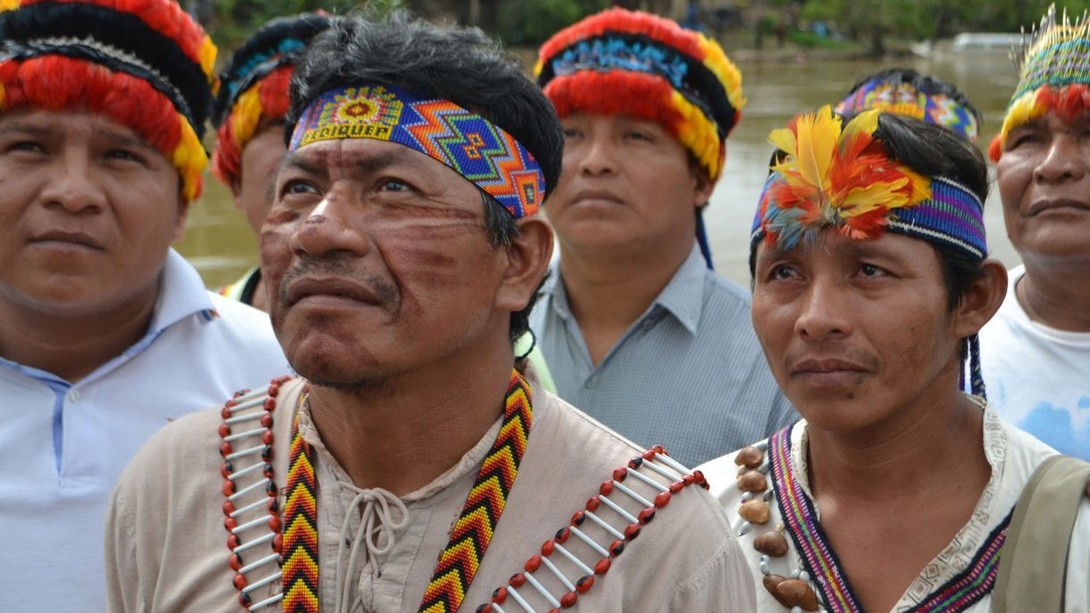
Last week, we spoke with Yaizha Campanario, a volunteer advisor who recommends grants for Global Greengrants Fund in Peru. Yaizha gave us an update on the challenges Indigenous communities in the Peruvian Amazon are facing in light of the COVID-19 pandemic.
The biggest concern is keeping the pandemic from spreading to remote Indigenous communities in the first place. Since most of them lack telephones or radio connections, at the start of the pandemic, organizations that work with the Indigenous had to decide whether someone should visit the communities to share information about the virus, when even a visit could put them at risk. Information was shared with those who did have phone access, hoping that the news would then pass from community to community.
Many Indigenous peoples with land have started to lockdown, as they can afford to maintain a subsistence economy based on their natural resources. However, communities without land are struggling with access to food, as markets have closed down.
First, the government planned to give these tribes money, but several Indigenous organizations said that money would not help them with no access to food supplies. The government then planned to deliver food to communities and sent an official with police to make the deliveries. The delegation went into communities without masks, and attempted to go door to door, risking exposure to everyone in the villages. Some communities never received the deliveries, and the risk of starvation is a real threat. Today, there are already 18 communities at risk as it has been confirmed that four members of the local government delegation that visited Achaur communities near the Corrientes River tested positive. As of April 30, there was already one Achuar woman with symptoms.
Additionally, extractive industries are still in operation, many of them overlapping with Indigenous territories. Workers are going back and forth from cities to the rainforest and are taking very few safety precautions. Over 200 mining workers and one oil worker has already tested positive for COVID-19 and the Indigenous are worried about the risk of infection.
Another concern is what to do if someone within the tribes gets sick. Health and public services are absolutely precarious or nonexistent deep in the Amazon jungle, and many Indigenous communities in Peru live five days by boat from the nearest hospital. To get a sick person access to healthcare, the government would need to be willing to fly a plane into the Amazon to relocate them to a hospital, something that the government currently does not have a plan or budget to make possible. Another concern is the fact that in nearby regions there are just one or two hospitals, and many are already overwhelmed with patients.
Many Indigenous that had gone into the cities to buy supplies prior to the lockdown got stuck with no means for living in those cities and no way to get back home.
Indigenous communities and the organizations that support them have been appealing to the Peruvian government and the United Nations for support and protection of their rights. There is a real concern about what happens post-lockdown with continued risk of contracting the virus. What comes next?
For Indigenous peoples who have lived in harmony with the environment for decades, this pandemic is evidence that the ongoing disruption of delicate ecosystems has disastrous consequences. As many of our grantees in Peru aim to protect their rights to land and territory against the threat of extractive industries and deforestation, this pandemic is calling attention to the urgent need for systems change.
In the most remote corners of the globe, where those least at fault are experiencing the most serious impacts, our support is urgently needed. The time is now to challenge the fossil fuel industry, protect rainforests, and ensure the survival of those who serve as stewards of our planet.
Photo Credit: Matt Hanson
